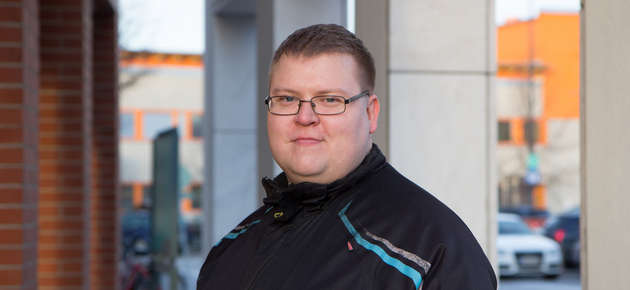Dissertation: New regional development model from University of Vaasa is helping public sector ...


– In a sense regions are acting as entrepreneurs themselves, as they look at current resources and try to combine it in new ways in order to create new products, services and processes, Antti Mäenpää explains.
This activity, however, is challenging for public organisations who may not know how to start such process with regional stakeholders. Whereas universities and companies existence lies on their ability to innovate, public organisations have had a more passive role. So how can public organisations get into the action themselves? In the dissertation it is suggested that there are three main challenges, which may derive from this new position: stakeholder inclusion, knowledge generation and dominant actors.
– Connectivity model is developed in order to guide the regional development discussion based on preliminary findings and therefore it can be seen as one solution to these problems, Mäenpää says.
From local development tool into European practice
Connectivity model was developed in 2013 by regional studies professor Seija Virkkala, Åge Mariussen and Antti Mäenpää, in cooperation with the Regional Council of Ostrobothnia. Originally connectivity model was designed to help Ostrobothnia in its strategy formulation. In the currently ongoing LARS (Learning Among Regions in Smart specialisation) project, the utilisation of the tool has been expanded to 8 different regions in Finland, Sweden, Norway, Germany, Lithuania and Latvia.
– Regions first analyse their own challenges and gaps and after this the different regions look for solutions together. This allows for transnational learning. As an example, the Swedish region Västerbotten seems to be really good in collaboration between public organisations and companies and this might interest our Lithuanian partners, which might hear about some good practises and possible solutions. Lithuania and Hamburg, on the other hand, were really good at utilising NGOs in their development, which might interest us Finns, Mäenpää describes.
Public sector innovation through mutual dialogue
Connectivity model is based on interviews or surveys, which are conducted among companies, public organisations, universities and NGOs. Focus is on discovering two figures regarding various aspects of innovation: expectations and experiences. Expectation means what the cooperation is on ideal level, i.e. what the respondent would like the cooperation to be; whereas experiences are measuring what the cooperation has been in real-life. The difference between these two figures presents a gap. The bigger the gap is, the bigger the issue is, as clearly the respondent is not too happy about cooperation, where he/she expects for more than what the situation currently is. These gaps can then be taken into discussion and solutions can be looked upon together with various regional actors. Collaboration is also measured in regional, national and international level, so that one is able to see the wider picture.
-The development of the Connectivity model itself is a good example of multi-discplinary collaboration, as the gap-measurement is based on previous work of industrial management professor Josu Takala. One can generally speak of development model done in University of Vaasa, Mäenpää explains.
The model has acted as a discussion opener since its beginning, as gaps are only showing direction and the rest is agreed upon in focus group discussions among regional stakeholders. This has created a tool, which helps public organisations in indicating the biggest issues in regional collaboration and makes the discussion more focused upon the findings. At the same time, public organsiations are participating more actively in regional innovation networks and do not come there empty-handed, but provide other actors interesting measurements and relevant discussions.
– The calculated numbers are not enough in themselves. As an example, our previous calculations indicated, that in the city of Jakobstad there was a large gap between boat-building companies and public organisations regarding infrastructure. During focus group discussions we discovered, that the gap was due to having a too narrow road in the local harbour, which was difficult to use, when transporting larger boats. This way abstract figures turned out into very concrete development proposals, Mäenpää describes.
Public Defense
The public examination of M. Sc. Antti Mäenpää´s doctoral dissertation “The Challenges of Public Organisations in Coordinating Smart Specialisation and a Connectivity Model as One Solution” will be held on Thursday 23 January at noon in University library Tritonia´s auditorium Nissi (K218), University of Vaasa. The field of dissertation is Regional Studies.
Professor Vesa Harmaakorpi (LUT-university) will act as an opponent and professor Seija Virkkala (University of Vaasa) as custos. The examination will be held in Finnish.
**
Mäenpää, Antti (2020) The Challenges of Public Organisations in Coordinating Smart Specialisation and a Connectivity Model as One Solution. Acta Wasaensia 438. Doctoral Dissertation. Vaasan yliopisto. University of Vaasa.
Publication pdf: http://urn.fi/URN:ISBN:978-952-476-898-6
Additional information
Antti Mäenpää was born in Vaasa, Finland in 1988. He finalised his upper secondary education in Vaasa´s Lyseo in 2007. Mäenpää finalised his master thesis from University of Vaasa in 2013. He has worked in research and teaching tasks in regional studies, as a project researcher, doctoral student and research assistant. Before this, he worked in energy technology field in logistics as a foreman and among other tasks.
Contact information
Antti Mäenpää, tel. +358 29 449 8531, antti.maenpaa(at)uwasa.fi